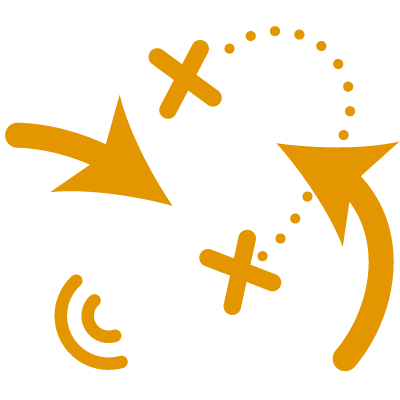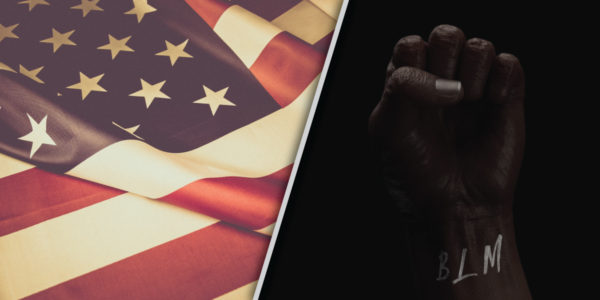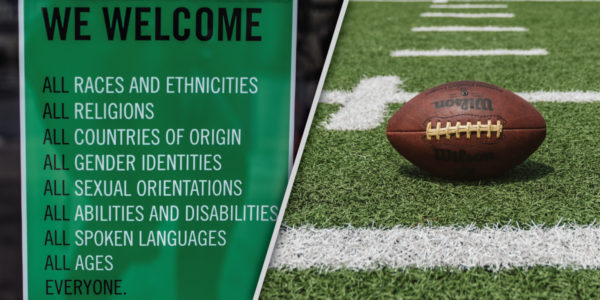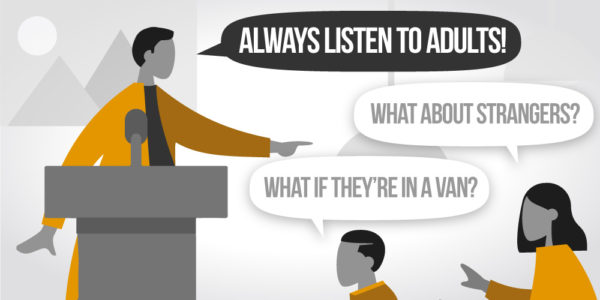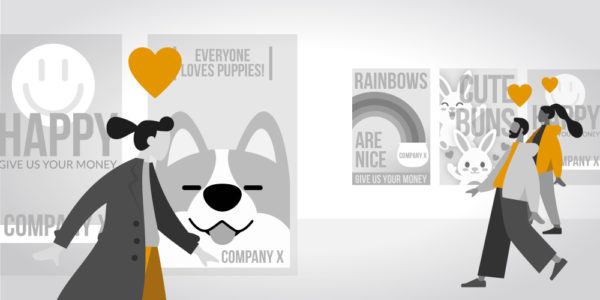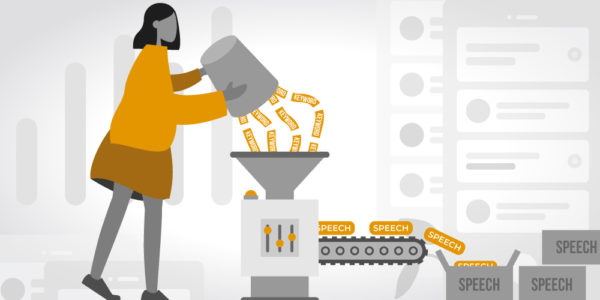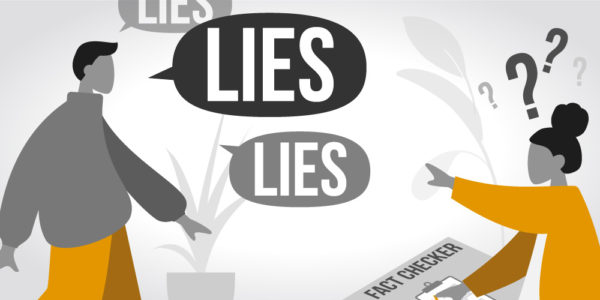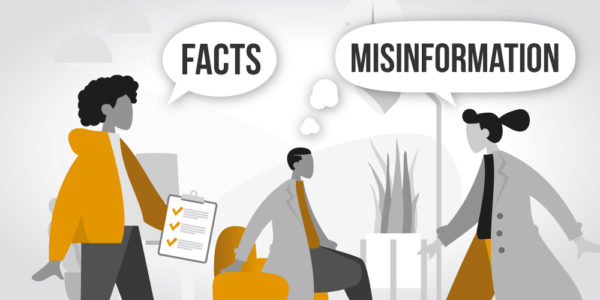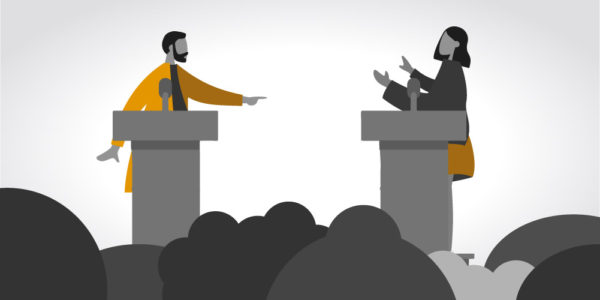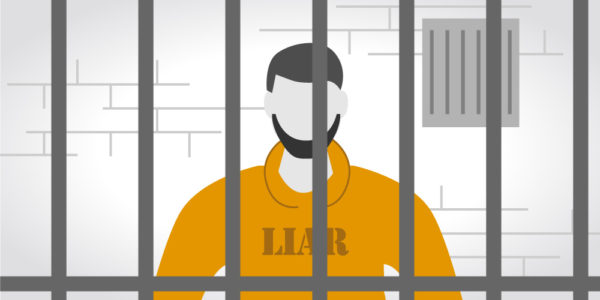Fear
Fear is more powerful than we give it credit for. Secondary emotions that are born from fear can obfuscate the sources of our opinions and actions, making it difficult to recognize how our fears can be leveraged by others. Many times when we think we feel anger, we are actually experiencing fear, which is why fear so easily breeds hate. Hate is a fear accelerant, and alters our ability to see reality for what it is. When an idea or a term is connected to an individual’s sense of fear, it triggers self protection mechanisms that override our ability to see facts and reality objectively. In that state, an individual can experience fear when there is no danger, which is why fear can be used to alter behaviors for just about anything–not only situations that present a real threat.
So I’m wrong, what now?
Fight With Your Mind highlights an example of selflessness we often miss.
"Physicists' perspectives could be very important in helping people deprogram from brainwashing. No other group of people are as practiced at having to alter their perceptions of reality than physicists. Their unique experience and expertise could help alleviate the fear associated with letting go of false paradigms in order to get to the truth. Those brave enough to admit that they are wrong need not be scared–physics redefines our reality everyday, and Earth still turns."
Our search for the path to peace
Laws not war. But when laws can be used in warlike ways, are laws just another advancement in the arsonal, or are they the path to peace? How can we call it peace if we are not equal under the laws? Is it possible to create laws that treat everyone equally, and if so, can we accept peace? Is discriminatory law better than no law at all?
We speak with those that have seen firsthand the atrocities that come with war, and then ask those that have been suppressed and harmed by law if they feel they live in times of peace.
Photos we can’t look at
Journalists, especially war correspondents, show us footage and report from places of extreme hardship and danger to reveal to the world atrocities committed when those in power abuse their position. This honest and unfiltered footage that we try so hard to look away from is an opportunity to accept the truth of the situation, yet we have never looked the other way more than now. The death of journalism will be the death of our window into the truth, especially in areas where only power speaks for the people.
No outsiders in the melting pot
We are a country of people from all over the world, sharing a way of living together under one constitution. As true as this is, in function not everyone is given the same opportunities, and not everyone receives open and welcoming acceptance. What is it like to be a non-white citizen in this country, and is the American dream still available to people that deal with the feeling of being pushed out because of their heritage? Are we still a melting pot or has the United States become selective in defining a new and limited culture?
Causality
What we see is not reality but a useful perception intended to help us through our world more systematically. All of our perceptions are constructs of the brain and do not actually exist out in reality. The brain uses depth, light, and other perceptive cues to interpret what is there and combines it with memory to create what we believe we see before our eyes. In science, we can show how both time and space are dependent on the observer, and there are several quantum truths that imply that reality changes based upon whether or not an observer is present. If we can’t trust our eyes, and reality seems to have multiple sets of rules, is there anything that we can really know, or any common reality that we can share? Here we talk about something that everyone does agree on, causality, and how understanding why it is the thread through everything helps us to find truth in a soup of perceptions.
Answers in our DNA
Several migrating species display an astonishing innate ability to replicate the migration patterns of previous generations without learning or following them first. This allows the novice offspring to migrate earlier than the experienced adults of the flock, with the adults rejoining the offspring later in the season. Unless you are a believer in a complex bird language that can communicate directions, this phenomenon can be explained by memories stored in DNA.
Here we explore what other answers could potentially be unlocked through DNA and innate memories. Is it possible that pieces of our history are stored inside ourselves? Could advancements in the study of our universe ultimately be unlocked through this amazing code of information?
Expanding societal systems to apply the lessons of history
From democracy, to communism, to socialism, to monarchy, to anarchy – Outside of thought experiments, real world examples of different societal systems across history share a common property of failure. Seemingly, all examples, when given time, move away from the ideals they were founded on and from the original goals the system was created to achieve. Why do we feel the need to choose one system instead of making a grand system, a supersystem, that is formed from the best ideas of each? Why don’t we incorporate the lessons painfully learned from their weaknesses?
Here we explore the history of the ideals these systems were founded on as well as the real world examples of these systems that share the name but left the ideals behind.
Using a lie to reveal the truth
Magicians use deception to create illusions intended to entertain audiences. When an audience no longer understands that they are being deceived, and instead believes that magic itself is occurring, is it the responsibility of the magician to reveal the trick? Can magicians be helpful in spotting deception in society’s corrupt entities? Is using deception to reveal the truth different than using deception to conceal the truth?
Football: a case study of Marketing in sports
The lights, the brands, the music, the timing, the tribalism, and the seamless transition between the sports event, the advertisers, and the program that sports fans watch at home.
Football is possibly the best example of marketing in its most efficient and effective gear. Marketing tactics are implemented to steer your actions, amplify your emotions, and maximize spending. However, football is a shared experience that is special without the extravagant performance, the influential tactics, or the flashy camera angles and interactive graphics.
It transcends race, religion, and politics, and provides a platform for people with differences to come together. Can we establish common ground with those we don’t understand by talking about football? Can that common ground be built upon to bridge our differences?
Comedians
Comedy is a tool that can be used to reveal the truth. Comedy is so effective at stripping back discomfort, that sometimes it can be the only way to talk about the truth when it is especially ugly. Comedy helps us face truths in ourselves and truths in others–and when we can laugh together, we struggle less to see that we are more similar than we imagine. In our political atmosphere, a few comedians have ventured into using comedy to make political points, and like any good tool, comedy can also be used as a weapon. We talk to comedians that are using comedy to bring people together instead of tearing people apart, to see if laughter is the solution to all of our differences.
Poetic Naturalism
While naturalism is the "idea or belief that only natural (as opposed to supernatural or spiritual) laws and forces operate in the world", poetic naturalism understands that the way we find personally relevant meaning to life does not naturally emerge from a purely scientific approach. Science is a rigorous method of finding what is true or false, while poetic naturalism encourages extending the conversation to include contemplation into what is right and wrong. It integrates scientific reasoning methods into our personal purpose-seeking and meaning-making, with an emphasis on Bayesian techniques.
Dark Pattern Design
Using a variety of dirty tactics to trick the user into authorizing payment, signing up for unwanted services or advertising, or being redirected to an undesired location. This tactic abuses everything from pattern recognition to trust, and instead of having the goal of manipulating the public into willingly performing the desired action, the goal is to trick the user into the desired action by any effective means possible. This often utilizes the wiring in the brain that is cemented by performing repetitive tasks and can be as simple as switching the yes and no button options after the user has become accustomed to seeing them in a certain order or location. For a full library of tactics and reported running dark pattern scams, visit:
darkpatterns.org
Do we have the right to ALL of our opinions?
In our society we have a basic rule of thumb to guide human interactions; you have rights until you infringe on someone else’s rights–if you infringe on someone else’s rights, you lose your rights. But what happens when our opinions infringe on the rights of others? Should we then lose the rights to our opinions? In a society where opinions are held onto with death grips, are we willing to compromise on how we feel in order to ensure everyone has equal rights, equal treatment, and equal justice?
Universal Basic Income–fixing many problems with one action
There are several ways to approach fixing the homeless problem, one of which is a universal basic income. Oddly, UBI is discussed more as a poverty solution and less as a homeless solution, likely because homelessness is a complex issue with non-monetary needs. Despite this truth, money is still an overwhelming factor in homelessness, and with one action, this country could get huge numbers of people off of the streets. As a beneficial side effect, removing those that have merely fallen on hard times out of the homeless demographic helps separate the remainder of the population into a spectrum of more tangible categories that have clearer solutions. Instituting a UBI would shine light on the myriad of factors that contribute to homelessness in this country, and would be an act of mercy for over a half a million Americans.
The lies we tell ourselves to avoid telling the truth
Cheating spouses that justify keeping the betrayal a secret use a flawed thought sequence. Cheaters feel that it will only hurt their loved one to unburden themselves, but don’t realize that they have stolen the ability to know one’s own reality from their partner with this choice. Who are cheaters protecting when they make these decisions and when will we realize that decisions should be made by all of the parties involved?
Born into the lie
When the norm is what you are born into, and lying is the norm, the concept that people can be honest seems like a lie. Lou talks about having a mother that has an unhealthy relationship with the truth and how that has stolen good memories, caused a struggle with trust, and motivated a search for a more honest life. Many of us don’t realize the harm we cause when we lie--the effects are not what you might imagine.
Knowing how to profit but not to protect
What is success? Defining success should be a matter of defining your goals. In a capitalistic society, where success is defined as profit, our goals end up reflecting our capitalistically constructed definitions of success. Instead of defining our own goals, we allow a system that doesn’t have our best interests at heart to define them for us for their own benefit. How does a generation recapture the control to set goals outside of this framework in order to protect the earth and the success of future generations?
Education on our history–do we care more about how it looks or how it was?
We all seem to be aware of the connection between not knowing history and repeating our mistakes, yet the system continues to portray a glorified version of history in schools. If we all understand that future generations would reasonably benefit from taking a high school class that concentrated on the worst of our mistakes, then why don’t we change the curriculum? How difficult is it to change what is taught in schools in this country, who benefits from teaching an incomplete story, and what steps would we have to hypothetically take to make such a large systemic change?
We explore this and alternatives to curriculums, such as intergenerational teaching methods, to see if we can find a way to properly warn future generations away from repeating our darkest moments. Can the powers that be truly rewrite our history? Can the truth trump power?
Wallet activism–the cost of putting your money where your mouth is
Are we focusing our energy in places that will create meaningful change? As a whole, society has some very good intentions, and in especially turbulent and extreme times, most of us that are able are ready to put our wallets behind our beliefs. This can be difficult in a world largely run by corporations, almost all of which seem to break some moral compass. Is it possible to purchase everything needed for a modern life without compromising our values? When the cost of finding a more moral alternative is so high, is wallet activism a positive influence, or have we turned socially responsible shopping into another privilege for the rich and burden for the poor?
What are the most important holes in public knowledge of US law, official government systems, and our constitution?
How might our opinions change if we only had more information about the systems that we are bound to? In this country, being naive to the law does not make you unaccountable to the law. Here we explore some of the most important, yet little understood points of the foundations this country is built upon to see if merely having the right information changes minds.
Changing laws without going to law school or running for office
How do laws change? When we as citizens can identify holes in the system or have information that could improve or restructure systems to be better, what is the proper avenue for our input? For citizens that are not able or interested in dedicating their entire life to the law or to public service, how does one reasonably contribute expertise in a way that is sure to be heard?
Through those that know the law and have dedicated their lives to public service, we explore the ways that normal citizens can affect change without exiting the life or the work that built the perspective and expertise they are offering.
Non-traditional action
Voting, protesting, signing petitions, calling our representatives, running for local government, volunteering, and a long list of “go to” activist activities are all amazing ways to participate and make change in government–but where do these actions fail, and who falls between the cracks of the good these actions create? While everyone should still participate in traditional activism because of the good it is known for, this piece explores non-traditional action ideas, such as FWYM.
Here we expand the possibilities, thinking outside of the definitions and boundaries of normal political participation to reach people that no longer believe in a system that failed them. “Creating change” might be a more expansive subject than you think, and the power to impact your fellow citizen might be entirely inside the self.
Herd Mentality
This tactic uses language that emphasizes quantity over quality, where the claim is not that something is the best, but is the most popular. Implying that most people do things a certain way – or that you are out of alignment with some kind of universal agreement – is a manipulation tactic intended to neutralize dissent. Using statements that evoke the feeling of exclusion or isolation for anyone in disagreement triggers fear and self doubt, and associates all paths except for agreement with unpopularity. In a state of fear or doubt, humans are less likely to go against the perceived flow, even if that flow is falsely manufactured.
False Absolutes
Statements that are only absolute in a certain context can be used as a starting place to manipulate audiences into believing the same statement is appropriate in all contexts. Wording a statement so that it sounds universal discourages audiences from checking to make sure that the information is true in all circumstances. This tactic creates black and white thinking patterns and dampens analytic thought processes that would reveal obvious exceptions and holes in logic.
Association To Universal Positive Statements
This tactic abuses our brain’s propensity to make associations as an effective way to store memories. Associations are fairly simple to create, sometimes only requiring proximity to form the necessary neural pathways to connect otherwise unrelated points. Commercials frequently abuse this tactic by showing an audience imagery that evokes strong emotion or stirs up a desired reaction, then connecting it to their brand. In a related abuse, companies and politicians establish false positive associations for themselves by creating connections to universally accepted positive or popular platforms. This lowers the risk of rejection and creates false approval from audiences that are unable to separate out the speaker from the speech.
Word Salad
Word choice is extremely important, but not as important as the rhythms and patterns of speech. By replicating familiar speech patterns, speakers can masquerade their word-salad as sensible content. Our expectations surrounding rhythm and inflection are so strong that if we aren’t paying careful attention, complete nonsense can take on meaning. Humorously, this is frequently done in media, where characters string together words with little meaning in a specific rhythm to sound like futuristic scientists or experts. Unfortunately, the line is not drawn at fiction, and this tactic is notoriously used by authority, especially when making statements attempting to mitigate wrongdoing.
Making Claims That Cannot Be Proven Wrong
There is no risk of being proven wrong if a statement is designed to escape fact checking. This tactic centers around claims that cannot be researched due to lack of access to surrounding information, or claims that address something that is beyond proof. If there is no manner to test the accuracy of the statement, audiences must form opinions that are based on other less reliable factors, such as confidence or delivery style. When speakers lack in substance, this tactic helps focus audiences on other qualities they might possess. Additionally, this tactic is often used to stall or deflect away from hardline questions when substantive responses haven't been prepared or don't exist.
Abusing Design Patterns of Authority
This tactic centers around the use of design elements or aesthetics that are commonly associated with authoritative entities such as government, science, or law enforcement. In marketing, psychology is used to assess how humans react to different forms, colors, and imagery, and this information informs how designers manipulate aesthetics to create predictable reactions from viewers. Aesthetics that were designed to re-enforce authority can be misused to prime viewers to ingest messaging as though they were coming from a more established or serious source, and can result in the spread of misinformation because of their formal appearance.
Normalizing
Like the frog that doesn’t realize it is being boiled, normalizing is a gradual process of changing perceptions about what should be considered normal. This tactic is often used as an attempt to mitigate outrage surrounding extremism. Labeling abnormalities as normal is an abuse of herd mentality, where people don’t want to be perceived to lie on the fringes of society or be left behind the pack. Unfortunately, normalizing is how many outrageous actions go unpunished. Normalizing interferes with the momentum of opposing parties by draining our sense of injustice and replacing it with acceptance of the new norm.
Creating False Connections
This tactic makes claims that two unconnected things should have an association. False associations, positive or negative, can be made by manufacturing a relationship or suggesting one thing is a catalyst for another. Implying or claiming proximity helps transfer pre-established associations without putting in effort to build a reputation from the ground up. In addition to being used as a shortcut, associations can be used to confuse or obscure true intentions by piggybacking onto trusted ideas, people, or products.
Taking Advantage Of The Lay Person
At its heart, this tactic takes advantage of the average person’s level of expertise–or lack thereof. Dishonesty and manipulation can be hidden by talking over the heads of lay people, which is an abuse of both the public’s tendency to be uninformed, and lack of education in certain individuals. This tactic falls apart easily when fact checked, however the goal is not to defend statements against scrutiny, it is to take advantage of anyone overly trusting or unmotivated to properly research or confirm information. Even if claims are later shown to be false, the tactic has already done damage by confusing lay people that may not be inclined to believe fact checking against what they believe to be a trusted source. Abusing the loyalty of lay people is no more honorable than a parent misleading their child, and much like the therapy required to recover from abuse, those taken advantage of with this tactic are in for a long road back to the truth.
Isolation
In situations where the desire is to normalize extremes, isolation is a common tactic. Where one context might highlight a behavior or ideology as outlandish, another context can be designed to make extremes appear typical. Isolation prevents outside ideas from conflicting with ideology, which allows for extremism to grow unchecked. Isolation can be achieved abstractly or physically, and often includes behavior and language modification to re-enforce separation from groups or norms. To maintain separation, fear tactics are common, and the more isolation a group can achieve, the more power that group has over its members. Additionally, prolonged separation makes it challenging for members to reintegrate into norms, which often leads to individuals remaining in the isolated state–furthering extremism in a cycle that is difficult to break.
Micro Targeting
When speaking to a very specific audience of a certain demographic, messages are designed to tap into that demographic’s known preferences and dislikes. The more specifically that an audience is targeted, the more extreme the messaging can be because the speaker isn’t worried about including considerations for a wide range of opinions. This creates a powerful and influential illusion of connection when it is in fact merely a product of research and targeting.
Deflecting Accusations By Making Accusations
This tactic helps guilty parties avoid taking responsibility for wrongdoing by distracting audiences with wrongdoing elsewhere–“I did this, but they did that”. Deflection and distraction mitigate consequences by adding confusion to the situation, and by normalizing bad behavior. If everyone is doing something wrong, then any singular person’s wrongdoing won’t feel as substantial as it would otherwise.
I’m Rubber You’re Glue: Accusing Others of Your Crimes
This tactic is used to confuse the public, especially an uninformed audience, by accusing an innocent person of the behavior or crime that the accuser committed themself. Unless the audience is already familiar with the relevant facts of the situation, it will be difficult to discern which party is being honest. The tactic is usually used in circumstances where an audience cannot have access to relevant information for whatever reason, or where the accuser can rely on a lazy audience not doing research which would uncover contradictory or revealing evidence.
Word association Through Repetition
Repetition tends to annoy humans, however it is a tactic that is used despite annoyance because of how effective it is. To associate two words, one must use the words together in extreme repetition, often causing audiences to roll their eyes, while the tactic works its magic. Repetition is an abuse of our physical brain’s system for retaining knowledge because it takes advantage of what we know about how neural pathways are formed. Instead of making convincing arguments, the tactic seeks to hardwire a human brain to respond in a purposeful manner to set “triggers” that then can be called upon. This sort of wiring bypasses analytical thought and causes affected individuals to respond before thinking.
Lying
In marketing there are laws that protect against false advertising, however there is no real way to regulate lying. Outside of the industry, lying is even less regulated, and there are no laws that punish lying, other than offenses within the justice system. Regardless of what liars claim, lying is not a universal flaw, and to make a confusing matter more complicated, liars tend to mimic honest people and honest language, making it very difficult for audiences to believe anyone. Lying has lowered the baseline for what we can expect the minimum to be, sewing distrust everywhere, even where lying isn’t occurring. This lack of shared reality, and the burden of research it places on the listener, should be viewed as motivation to implement punishments for those that get caught lying. Instead of losing trust in an entire population, the best protection is to call out lies when you see them to help create a culture that no longer accepts lying as merely a part of life.




